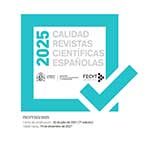Movimientos de mujeres indígenas en América Latina: el caso de Panamá y la CONAMUIP
Resumen
La Coordinadora Nacional de Mujeres Indígenas de Panamá es la máxima representante de las mujeres indígenas de Panamá (pueblos kuna, emberá, wounaan, ngobe, buglé, naso y bri-bri). Su creación, evolución y desarrollo ha de ser contemplado en el contexto del protagonismo creciente de los pueblos indígenas de América Latina, así como en el proceso de fortalecimiento del Movimiento de Mujeres de Panamá desde el inicio de la década de los 90. Su construcción se ha realizado paralelamente a través de itinerarios comunitarios específicos (Coordinadoras Comarcales), instancias nacionales –Consejo Nacional de la Mujer (CONAMU) y la Dirección Nacional de la Mujer (DINAMU) de Panamá– y espacios internacionales (Enlace Continental de Mujeres Indígenas de las Américas, ECMIA) constituyéndose como una organización interétnica cuyo objetivo es el trabajo con y desde las mujeres indígenas en todos los lugares en los que estas se encuentren (comunidades, comarcas, barriadas). Las tareas y proyectos realizados, encaminados al fortalecimiento individual y colectivo, han abarcado todos los temas que afectan a los pueblos indígenas y, especialmente, a las mujeres indígenas (interculturalidad, violencia, salud, conocimientos tradicionales de los pueblos indígenas, medio ambiente, etc.).Descargas
Descarga artículo
Licencia
La Revista Española de Antropología Americana, para fomentar el intercambio global del conocimiento, facilita el acceso sin restricciones a sus contenidos desde el momento de su publicación en la presente edición electrónica, y por eso es una revista de acceso abierto. Los originales publicados en esta revista son propiedad de la Universidad Complutense de Madrid y es obligatorio citar su procedencia en cualquier reproducción total o parcial. Todos los contenidos se distribuyen bajo una licencia de uso y distribución Creative Commons Reconocimiento 4.0 (CC BY 4.0). Esta circunstancia ha de hacerse constar expresamente de esta forma cuando sea necesario. Puede consultar la versión informativa y el texto legal de la licencia.









